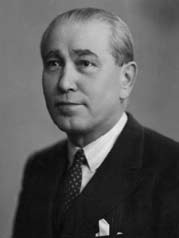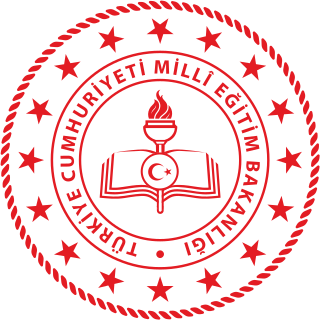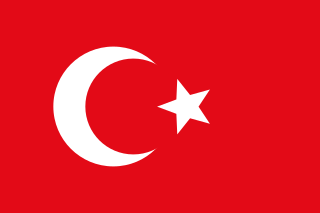
The Republican People's Party is a Kemalist and social democratic political party in Turkey. It is the oldest political party in Turkey, founded by Mustafa Kemal Atatürk, the first president and founder of the modern Turkish Republic. The party is also cited as the founding party of modern Turkey. Its logo consists of the Six Arrows, which represent the foundational principles of Kemalism: republicanism, reformism, laicism (Laïcité/Secularism), populism, nationalism, and statism. It is currently the second largest party in Grand National Assembly with 130 MPs, behind the ruling conservative Justice and Development Party (AKP).

The Grand National Assembly of Turkey, usually referred to simply as the TBMM or Parliament, is the unicameral Turkish legislature. It is the sole body given the legislative prerogatives by the Turkish Constitution. It was founded in Ankara on 23 April 1920 amid the National Campaign. This constitution had founded its pre-government known as 1st Executive Ministers of Turkey in May 1920. The parliament was fundamental in the efforts of Mareşal Mustafa Kemal Atatürk, 1st President of the Republic of Turkey, and his colleagues to found a new state out of the remnants of the Ottoman Empire.
This article gives an overview of liberalism in Turkey. Liberalism was introduced in the Ottoman Empire during the Tanzimat period of reformation.

Mustafa Kemal Atatürk, or Mustafa Kemal Pasha until 1921, and Ghazi Mustafa Kemal from 1921 until the Surname Law of 1934, was a Turkish field marshal, revolutionary statesman, author, and the founding father of the Republic of Turkey, serving as its first president from 1923 until his death in 1938. He undertook sweeping progressive reforms, which modernized Turkey into a secular, industrializing nation. Ideologically a secularist and nationalist, his policies and socio-political theories became known as Kemalism. Due to his military and political accomplishments, Atatürk is regarded as one of the most important political leaders of the 20th century.

Kemalism, also known as Atatürkism, or The Six Arrows, is the founding and official ideology of the Republic of Turkey. Kemalism, as it was implemented by Mustafa Kemal Atatürk after the declaration of Republic in 1923, was defined by sweeping political, social, cultural and religious reforms designed to separate the new Turkish state from its Ottoman predecessor and embrace a Western-style modernized lifestyle, including the establishment of secularism/laicism, state support of the sciences, free education, gender equality, economic statism and many more. Most of those policies were first introduced to and implemented in Turkey during Atatürk's presidency through his reforms.

Mehmet Şemsettin Günaltay was a Turkish historian, politician, and Prime Minister of Turkey from 1949 to 1950.

Ali Fethi Okyar was a Turkish diplomat and politician, who also served as a military officer and diplomat during the last decade of the Ottoman Empire. He was also the second Prime Minister of Turkey (1924–1925) and the second Speaker of the Turkish Parliament after Mustafa Kemal Atatürk.

The Liberal Republican Party was a political party founded by Fethi Okyar upon President Kemal Atatürk's request in the early years of the Turkish republic.

The Ministry of National Education is a government ministry of the Republic of Turkey, responsible for the supervision of public and private educational system, agreements and authorizations under a national curriculum. The ministry is headed by Yusuf Tekin.

Selim Rauf Sarper was a Turkish diplomat and politician. He served as Minister of Foreign Affairs between 1960 and 1962.
Republican Reliance Party was a former party in Turkey.

The Government of the Grand National Assembly, self-identified as the State of Turkey or Turkey, commonly known as the Ankara Government, or archaically the Angora Government, was the provisional and revolutionary Turkish government based in Ankara during the Turkish War of Independence (1919–1923) and during the final years of the Ottoman Empire. It was led by the Turkish National Movement, as opposed to the crumbling Constantinople Government/Istanbul Government, which was led by the Ottoman Sultan.

Women in Turkey have an active participation in national politics, and the number of women in the Turkish parliament has been increasing steadily in recent elections.

The 1st government of Turkey was the first government formed in the Republic of Turkey. In reality, there were other governments between 23 April 1920 and 29 October 1923, but the republic was proclaimed on 29 October 1923, and the governments were numbered only after this date.

The 2nd Grand National Assembly of Turkey existed from 29 October 1923 to 1 September 1927. Actually the parliament members were elected on 11 August 1923, before the Republic was proclaimed on 29 October.

Hamdullah Suphi Tanrıöver was a highly influential Turkish poet, intellectual, diplomat and politician. He adopted his surname Tanrıöver after the Turkish Surname Law was enacted in 1934.

Faik Ahmet Barutçu (1894–1959) was a Turkish politician.

Hikmet Bayur was a Turkish politician. He was born in Istanbul. He was the grandson of Kâmil Pasha, one of the Grand Viziers of the Ottoman Empire.

During World War I, several Kurdish rebellions took place within the Ottoman Empire.
















